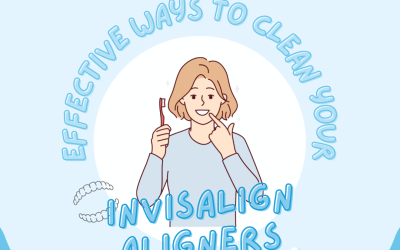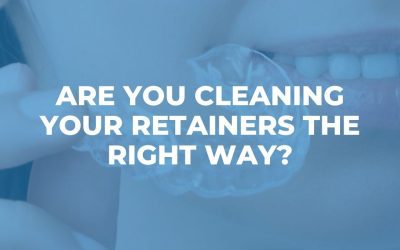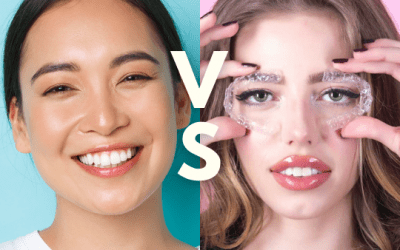What is Bruxism?
Here are some information on Bruxism that you should know.
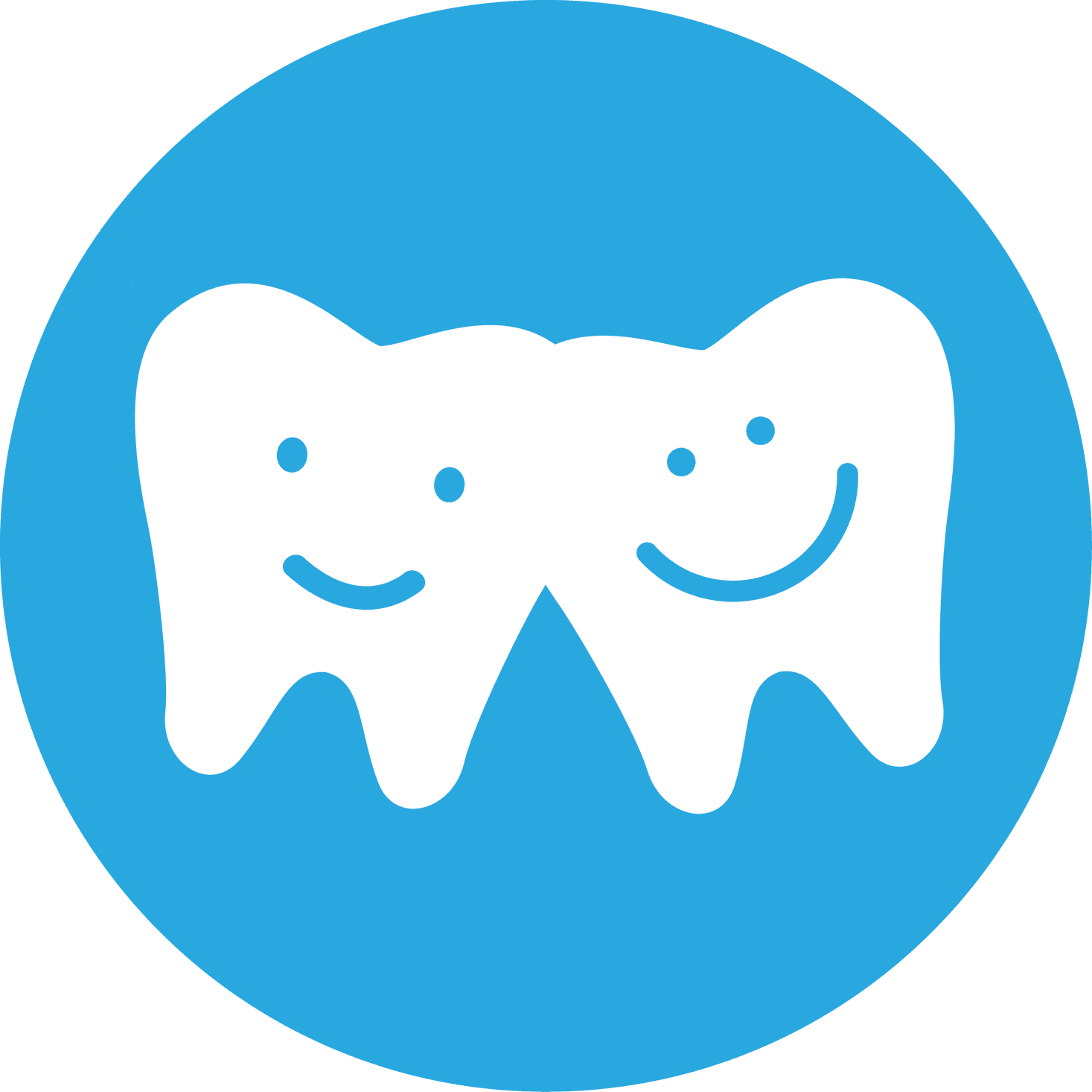
Written by NoFrills Dental
This dental article has been curated by the clinical team @ NoFrills Dental 🙂
October 17, 2022
Bruxism is a medical condition in which people habitually grind or clench their teeth, and it happens most often during sleep.
Most of us grind our teeth occasionally to some extent, and mild bruxism may not require treatment. In some cases, though, teeth grinding can happen so often and severely that it results in headaches, dental damage, and jaw disorders.
Night bruxism – also called sleep bruxism or nocturnal bruxism – is a sleep disorder, and it often occurs alongside other sleep-related ailments. While teeth grinding commonly takes place while you’re asleep, it can happen while you’re awake too.
Teeth grinding explained
The medical profession still can’t fathom out precisely what causes bruxism. However, it’s believed to be the result of a combination of genetic, psychological and physical factors.

The medical profession still can’t fathom out precisely what causes bruxism. However, it’s believed to be the result of a combination of genetic, psychological and physical factors.
In many cases, bruxism may be an automatic reaction to emotions such as:
- Frustration.
- Tension.
- Anger.
- Stress.
- Anxiety.
- Depression.

Daytime bruxism may also be a habit or coping strategy during:
- Highly focused concentration.
- Stressful, deadline-driven job.
- Short-term tension such as being stuck in a traffic jam during rush hour.
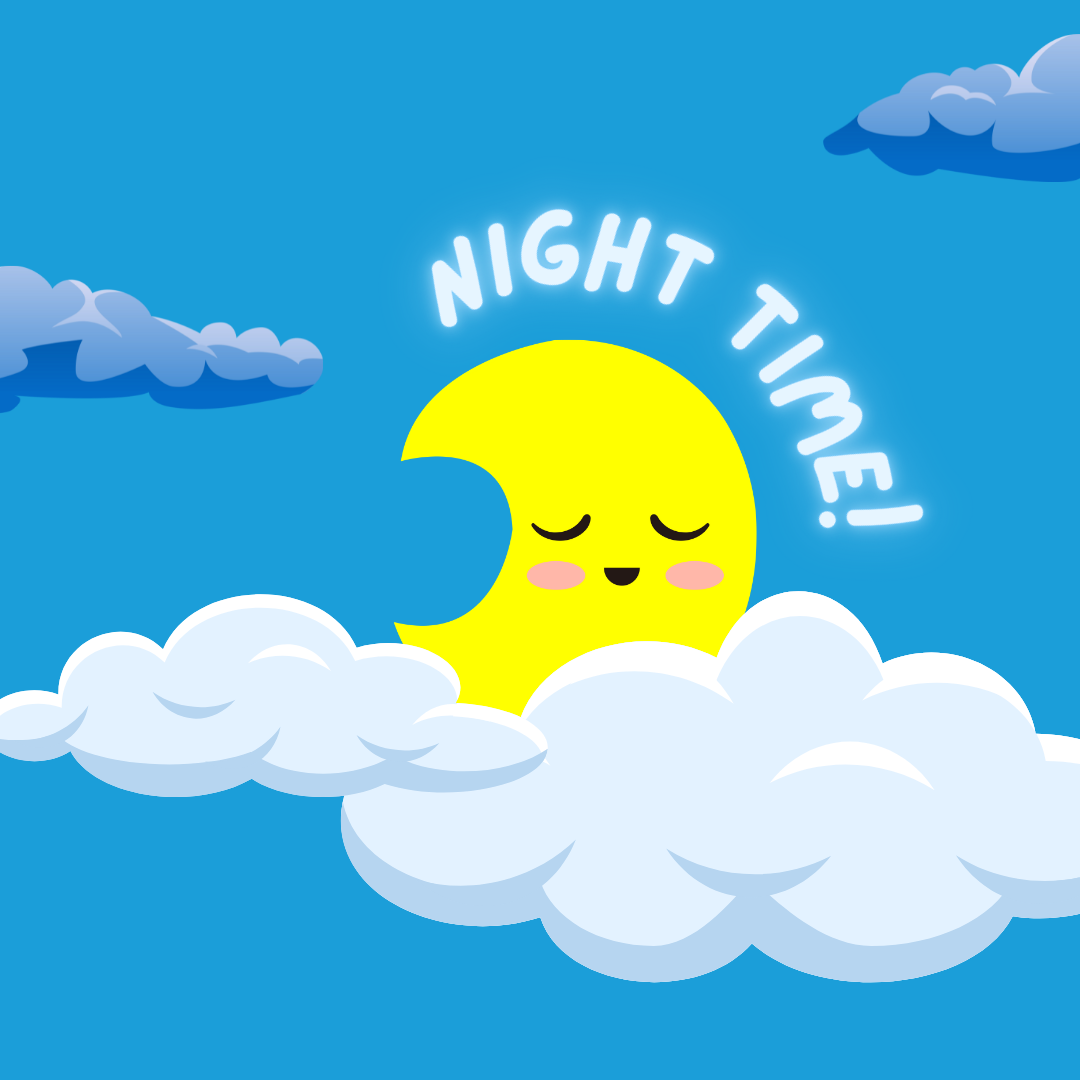
Night bruxism may be associated with sleep disruption such as that caused by sleep apnoea. Bruxism can also be a side effect of certain medications, such as anti-depressants.
Other possible causes of excessive teeth grinding include lifestyle issues such as:
- Alcohol consumption.
- Smoking.
- Recreational drugs.
- Too much caffeine – six or more cups of coffee or tea a day.
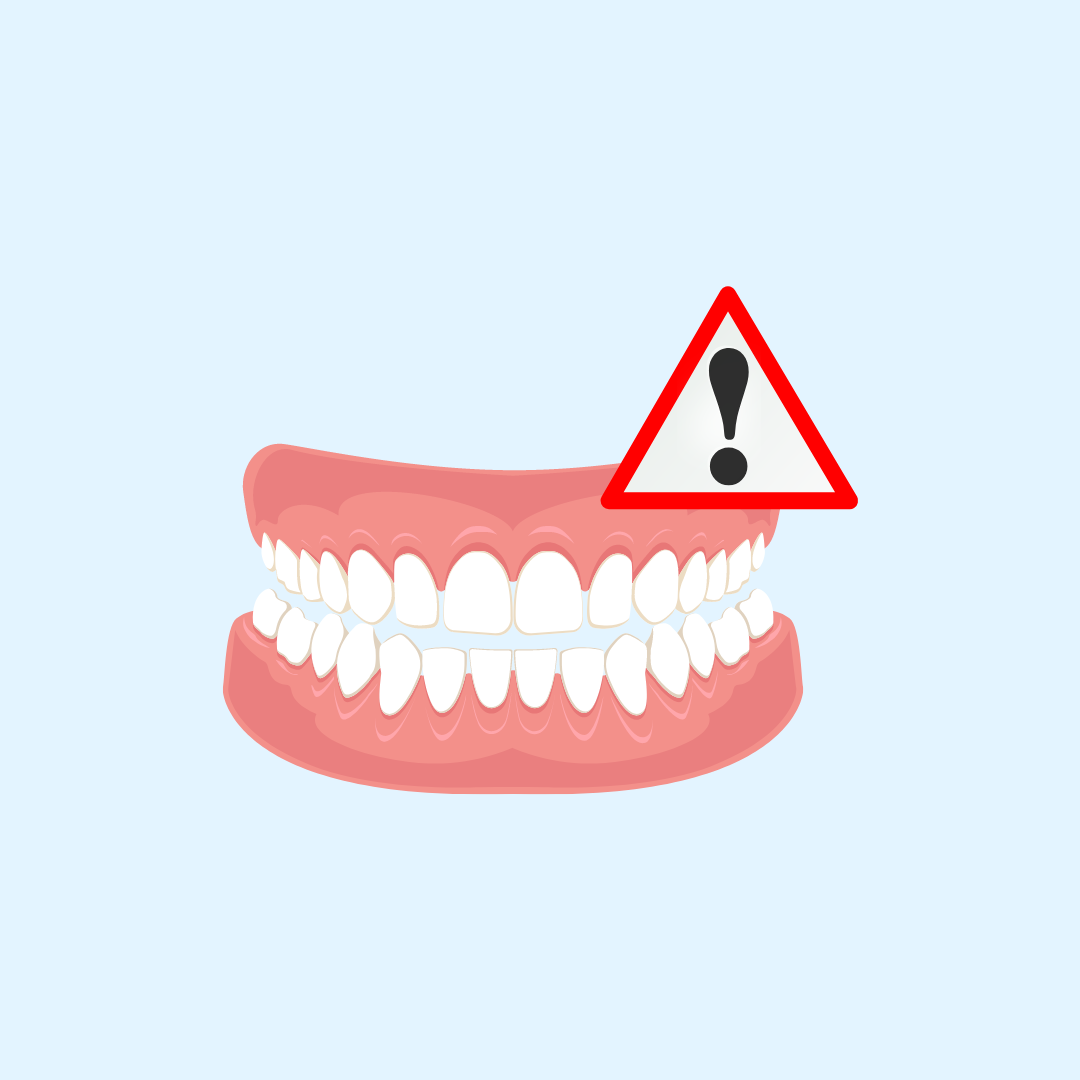
Bruxism Risk Factors
Some people may be at a greater risk of developing bruxism, including those who:
- Have an irregular bite.
- Experience spells of heightened stress or anxiety.
- Have a hyperactive or competitive personality.
- Have a family history of bruxism.
Bruxism has also been associated with mental health disorders and other medical conditions, including:
- Attention deficit/hyperactivity disorder (ADHD).
- Parkinson’s disease.
- Night terrors.
- Gastroesophageal reflux disorder (GERD).
- Sleep apnoea.
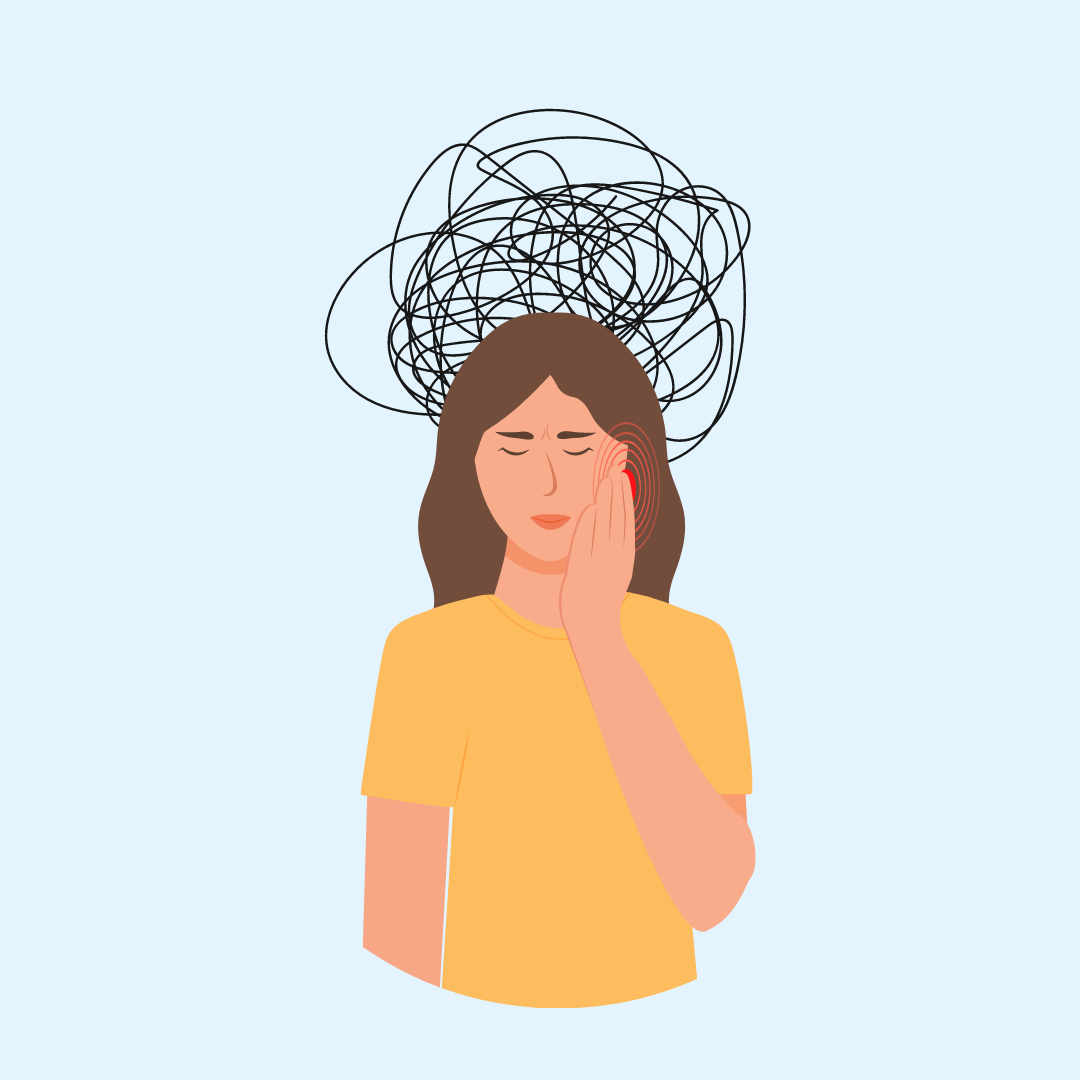
Symptoms of Bruxism
Many people don’t realise they have bruxism until they start to notice symptoms such as:
- Toothache.
- Loose teeth.
- Worn-down teeth.
- Chipped or cracked teeth.
- Tooth sensitivity.
- Dull headache, starting in the temples.
- Tight jaw muscles.
- Locked jaw resulting in difficulty opening or closing your mouth.
- Jaw or neck pain.
- Discomfort that feels like earache.
- Facial muscle pain.
- Damage from chewing on the inside of your cheek.
- Sores on the tongue.
- Tender gums.
If you have night bruxism, your sleep partner may become aware of your teeth grinding habit. Otherwise, you may not realise there’s a problem until complications develop.
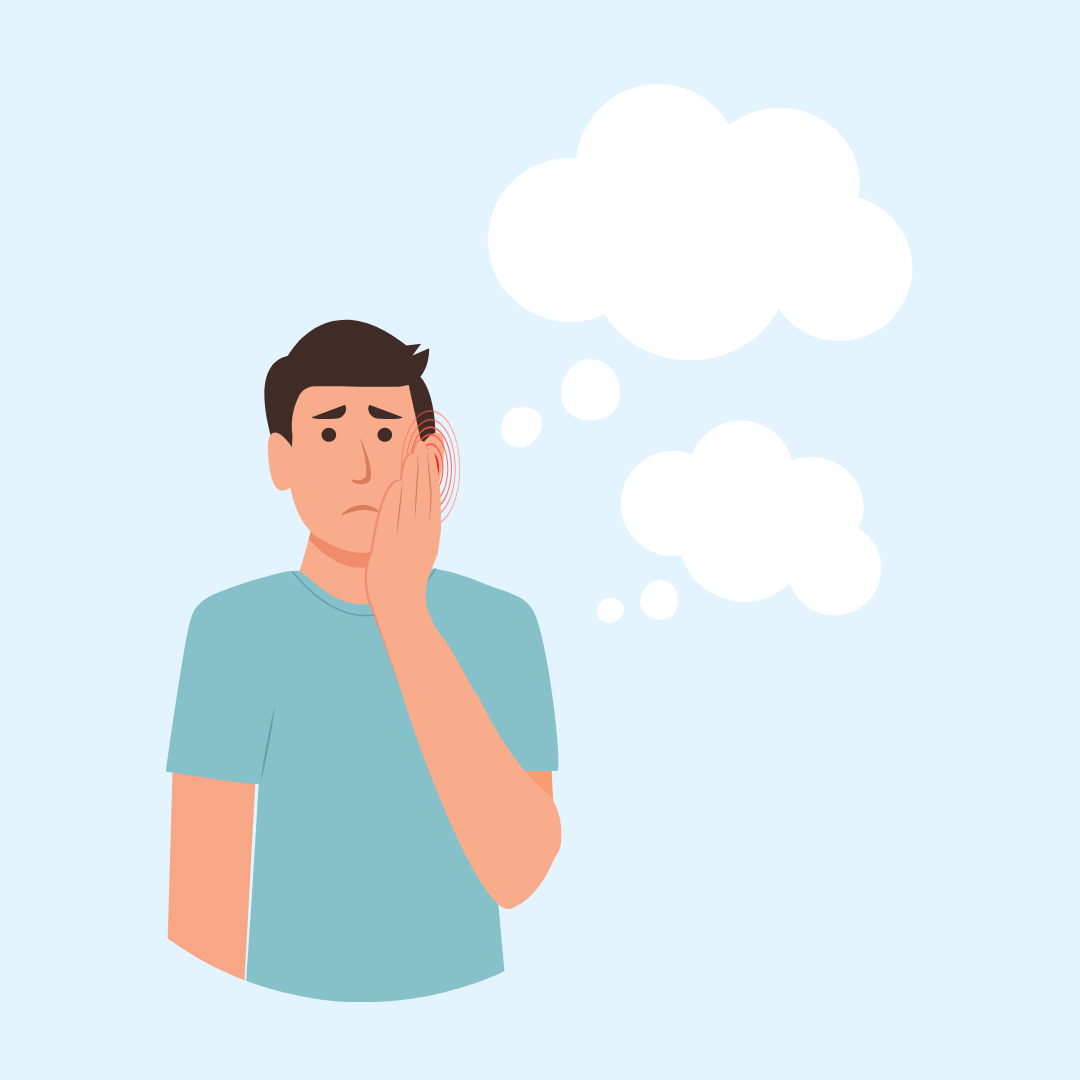
Bruxism Complications
In most cases, bruxism doesn’t cause serious issues, but severe bruxism can result in complications such as:
- Damage to teeth or dental work.
- Tension headaches.
- Acute pain in the face or jaw.

Bruxism and Sleep Apnoea
You may be grinding your teeth because you have another sleep-related issue – obstructive sleep apnoea (OSA). Or it could be the other way round. OSA results in recurring pauses in breathing as airways narrow during sleep. This can starve the brain and the rest of the body of oxygen, and you momentarily wake up gasping and spluttering. The exact connection between bruxism and sleep apnoea remains unclear. However, many research studies have found that the number of people with both bruxism and sleep apnoea is higher than expected.
Sleep scientists believe that bruxism may:
- Trigger sleep apnoea – signals from the nervous system that lead to teeth grinding can also result in breathing problems.
- Be a result of sleep apnoea – a response to the interruptions in breathing caused by OSA.
Sleep Apnoea Symptoms
Sleep disruption caused by OSA can result in symptoms such as:
- Headaches.
- Persistent fatigue.
- Feeling short-tempered or miserable.
- Difficulty concentrating.

Bruxism and TMD
Bruxism is in some cases related to the painful condition of TMD – temporomandibular joint disorder. Teeth grinding can either trigger TMD or make an existing jaw disorder worse. This happens because dental damage from severe bruxism can change your bite function by forcing teeth out of position. When upper and lower teeth don’t meet properly, facial muscles can shift temporomandibular joints out of their sockets, causing jaw misalignment leading to TMD.
TMD Symptoms
Symptoms of TMD are very similar to those of bruxism:
- Frequent headaches.
- Pain or soreness in the jaw, neck or face.
- Difficulty opening or closing your mouth.
- Pain in and around the ear.
FAQs
Can you prevent Bruxism?
You may be able to prevent bruxism or at least ease the symptoms by taking self-care measures such as:
- Maintaining a regular sleep schedule.
- Reducing stress – exercising, a warm bath, or listening to music, for example.
- Avoiding alcohol – alcoholic drinks interrupt sleep patterns.
- Refraining from chewing on gum or anything else except food. These habits get your jaw muscles accustomed to clenching, and you’re more likely to grind your teeth even when you’re not chewing.
- Avoiding caffeinated tea or coffee during the evening. Caffeine is a stimulant that can increase muscle activity such as jaw clenching.
- Avoiding smoking. Like caffeine, the nicotine in tobacco is a stimulant that increases the risk of bruxism.
- Scheduling regular dental check-ups – the best way to identify bruxism and get treatment.
If you have a sleep disorder, treatment for this may help reduce bruxism.
How do dentists diagnose and treat Bruxism?
Dentists can diagnose bruxism during regular check-ups, by looking for signs such as worn-down dental enamel or damaged teeth. They treat nocturnal bruxism by prescribing a custom nightguard to counter the effects of teeth grinding while you sleep. Nightguards create a barrier between upper and lower teeth. This ensures even pressure across the jaw and prevents further dental damage.
Treatments for problems associated with Teeth Grinding
Treatments for issues associated with teeth grinding include:
- Oral appliances to treat sleep apnoea – they keep the airway open by positioning the lower jaw forward while you sleep.
- Continuous positive airway pressure (CPAP) machines for more severe cases of sleep apnoea – they provide a constant supply of compressed air to keep the airway open while you sleep.
- A dental splint for temporomandibular joint disorder.
- Botox injections for TMD to relax jaw muscles
- Orthodontic treatment to correct a misaligned bite.
If you’re grinding your teeth excessively, contact us now for a definitive diagnosis to enable effective treatment.
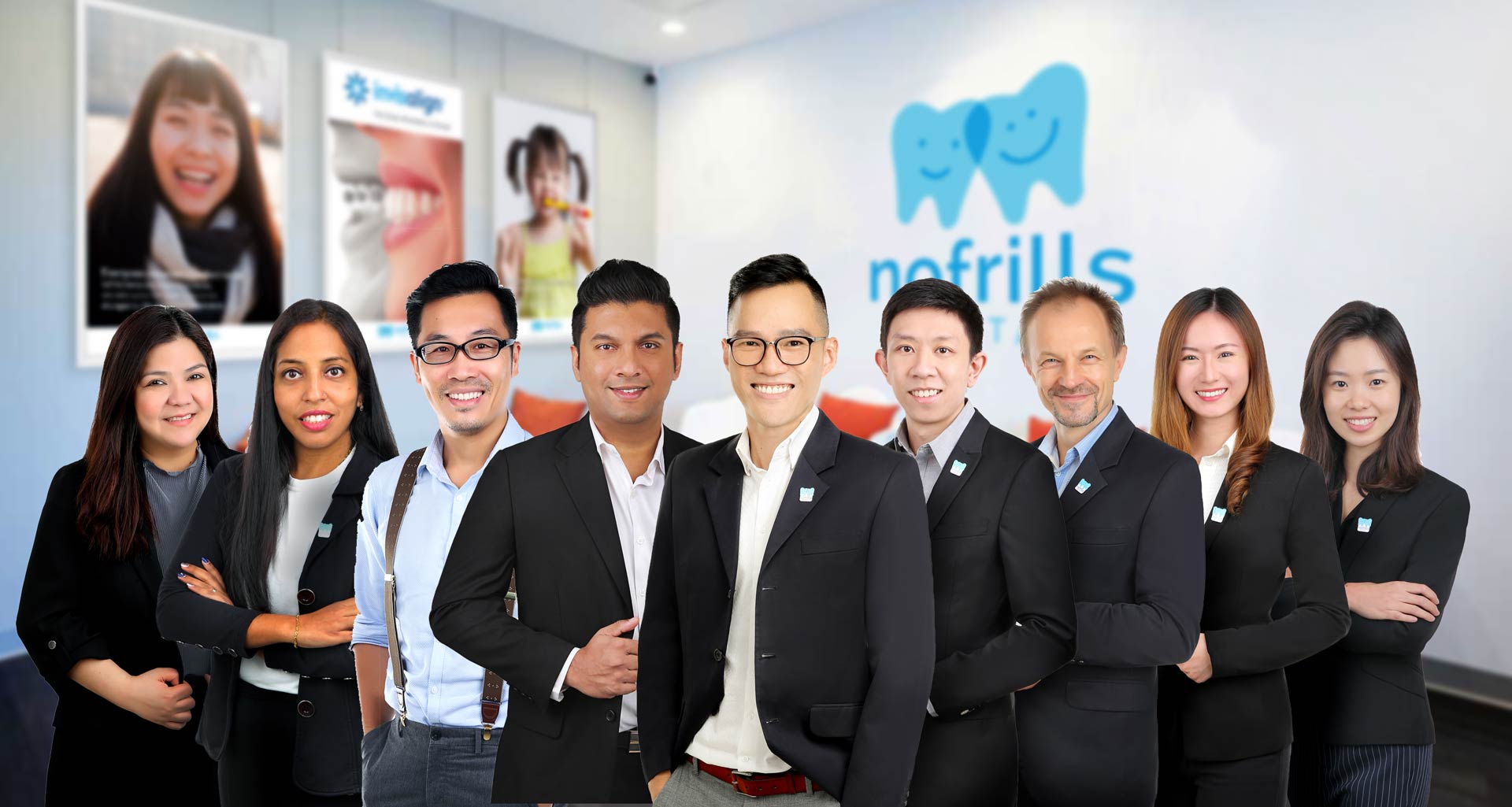
“
Looking to get started on your brand new & improved smile? Speak to our dentists today!
Our team of experienced dentists are fully dedicated to providing patients with high-quality and affordable dental care. Our dentists are well-versed in the cosmetic dentistry, and highly adept in producing highly aesthetic and long lasting results for all of our patients.
Schedule an appointment
We’ll get back to you within 24 hours.
Our Dental Clinics
We are conveniently located at these locations:
NoFrills Dental @ Suntec City
3 Temasek Boulevard
Suntec City (North Wing)
#03-317
Singapore 038983
NoFrills Dental @ Marina Square
6 Raffles Boulevard,
Marina Square,
#B1-11
Singapore 039594
Related Posts
Effective ways to clean your Invisalign Aligners
The advanced technology of Invisalign aligners has made them a hugely popular alternative to braces for straightening teeth, among teens and adults alike.
These clear plastic appliances are more comfortable and virtually unnoticeable in the mouth, and have the further advantage of removability for brushing and flossing and meals and snacks. And they can fix less complex orthodontic problems up to twice as fast as braces.
How to Clean Retainers: For Removable and Permanent Retainers
Retainers sit inside of your mouth and come into direct contact with your teeth. Bacteria, plaque and tartar can quickly accumulate inside of your retainers if they’re not cleaned properly and regularly. Just like your regular teeth, it’s important to clean your retainers everyday.
ClearCorrect vs Invisalign
In this article, we compare two popular clear aligner companies: Invisalign and ClearCorrect. They are two of the most renown in-office clear aligner companies that boast a strong track record of results. Both sets of aligners aim to straighten misaligned teeth and correct jaw discrepancies, however, the process to getting to an ideal end result (i.e., straight teeth and aligned jaws) varies slightly.
